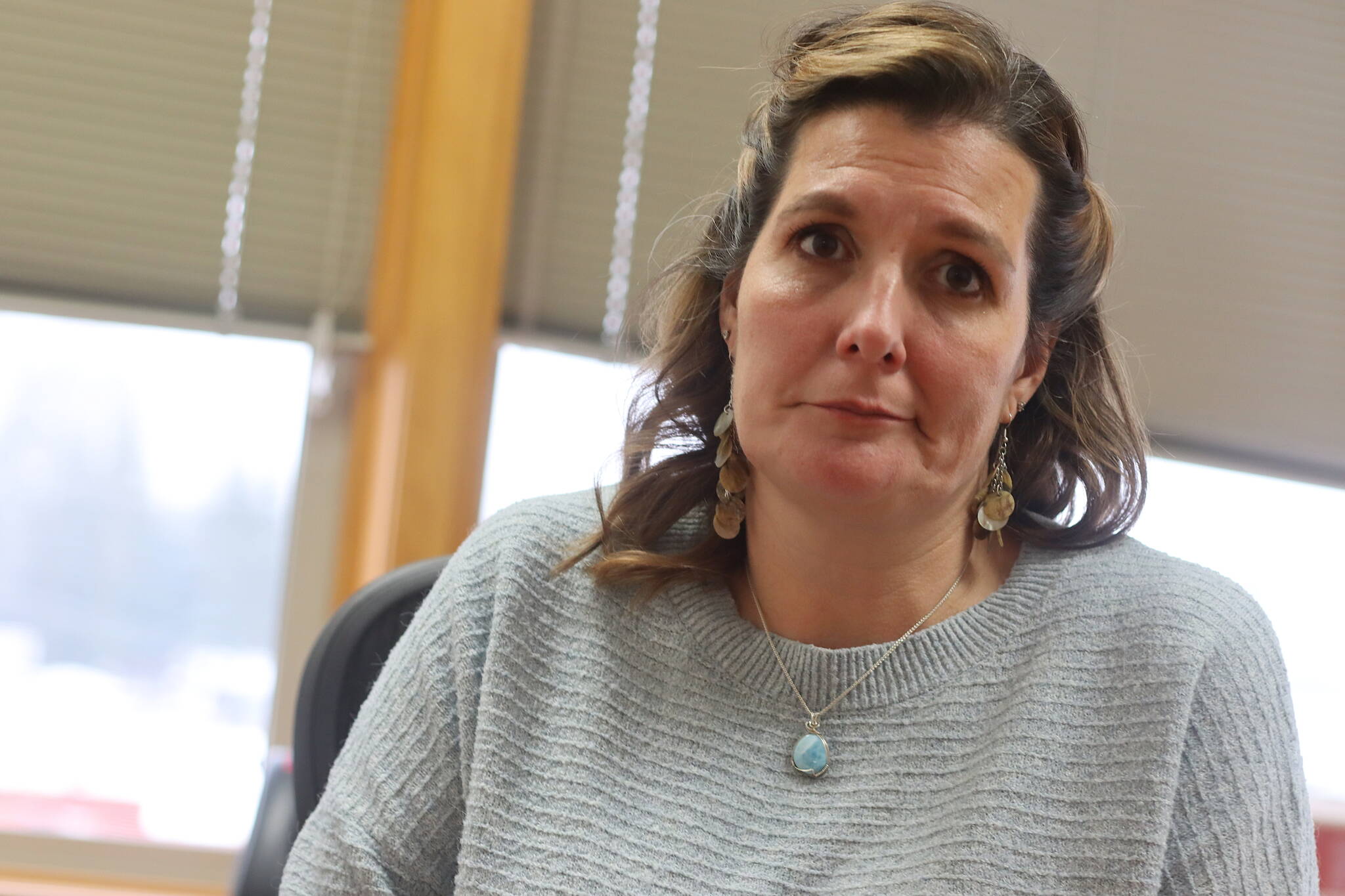This article has been updated to include additional information.
A months-long backlog in processing food stamps applications is now the responsibility of a new director after the departure of the state department’s current leader was announced Monday evening.
Shawnda O’Brien, who since December of 2016 was the director of Alaska’s Division of Public Assistance, has departed with no explanation or indication of moving on to another position, according to an email sent to Monday by state Department of Health Commissioner Heidi Hedberg to department employees.
Hedberg did not mention the food stamp problems that have received widespread media coverage in recent weeks and stated twice in her message that staff transitions within departments are common at the start of the year.
“Shawnda has served Alaskans for many years in the various roles she has held throughout the DOH and the former Department of Health and Social Services,” Hedberg wrote. “We appreciate Shawnda’s commitment to state service and the many successful changes she has implemented throughout her time with both departments.”
Appointed as the new public assistance director starting Jan. 17 is Deb Etheridge, a former state health department administrator who since March of 2021 has been the Assistant Director of Southeast Alaska Independent Living in Juneau. Her seven years of state experience includes serving as acting director and deputy director for the Division of Senior and Disabilities Services, according to Hedberg’s email.
O’Brien’s departure comes after at least 8,000 households applying for Supplemental Nutrition Assistance Program benefits since September have faced delays of 90 to 120 days in processing, far exceeding the 30-day statutory requirement.
In a Dec. 27 interview, O’Brien said the problem resulted from a combination of factors including an employee shortage, a surge in applications after the state ended its pandemic public health emergency declaration in July and a cyberattack in 2021 that continues to cause problems with state computers.
“They’ve been the same problems in other states with workforce shortages,” she said. “It’s not an easy fix or an easy thing to find solutions for.”
O’Brien said efforts to remedy the situation began as soon as they became aware of the backlog, which is expected to take months more to resolve.
“The ideal solution would obviously be never to have had this happen,” she said.
KTOO, which first reported the backlog in December, earlier this month quoted anonymous workers at the division who said the problems predate the pandemic and the current staff shortage came after Gov. Mike Dunleavy cut more than 100 jobs from the division in 2021.
Attempts to contact O’Brien for comment Tuesday were not immediately successful.
Department of Health spokesperson Clinton Bennett, in response to questions to Hedberg about the specifics of O’Brien being replaced, stated “I am not able to comment on personnel matters.” Dunleavy spokesperson Jeff Turner characterized reporting on reduced department staff as misinformation because it refers to “vacant, unfilled positions.”
O’Brien, in her December interview, noted the division is working to hire 45 temporary employees and fill 30 vacant permanent positions, with many of the positions already filled and likely to be ready to help applicants within a few weeks. Bennett, on Tuesday, stated progress is being made on the backlog.
“The September 2022 application backlog has been cleared and now staff working the oldest applications have moved on to the next month,” he wrote in an email.
• Contact Mark Sabbatini at mark.sabbatini@juneauempire.com

